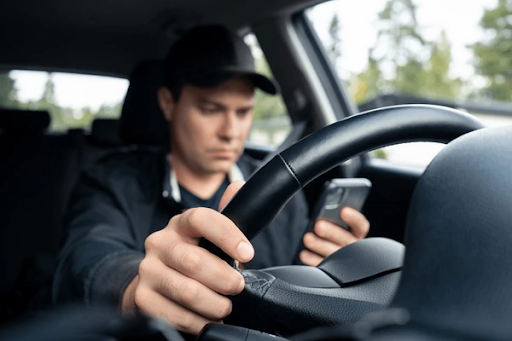Now Reading: How to Handle a Car Accident While Traveling Abroad: Essential Steps for International Drivers
-
01
How to Handle a Car Accident While Traveling Abroad: Essential Steps for International Drivers

How to Handle a Car Accident While Traveling Abroad: Essential Steps for International Drivers
Traveling abroad can be an exciting adventure, but unexpected situations like car accidents can quickly turn your trip into a stressful ordeal. Knowing how to handle such incidents in a foreign country is crucial for your safety and peace of mind. If you’re involved in a car accident while traveling abroad, prioritize safety first, contact local authorities, document the scene, and reach out to your insurance provider.
Being prepared for potential accidents can make a significant difference in how smoothly you navigate the aftermath. Familiarize yourself with local traffic laws and emergency procedures before your trip. Keep important documents, including your passport, driver’s license, and insurance information, easily accessible. Understanding your travel insurance coverage and having emergency contact numbers on hand can also prove invaluable in these situations.
Immediate Steps After a Car Accident Abroad
A car accident can be too much to deal with, nevermind if it occurs in a different country.
The key is to act the same as you would at home. Make sure everyone is safe above all else.
From there, gather as much information as you can and seek medical attention quickly. Here are the more detailed steps, so you can be prepared even in the worse case scenario.
Safety Concerns
Turn on your hazard lights and move to a safe area if possible. Check yourself and others for injuries. If anyone is hurt, call emergency services immediately. Learn local emergency numbers before your trip.
Seek medical attention even for minor injuries – ideally within 24 hours – as symptoms may appear later.
If the accident is minor and it’s safe to do so, place warning triangles or flares around the scene. This alerts other drivers and prevents further accidents.
Don’t leave the scene until it’s appropriate to do so. In some countries, leaving can be considered a criminal offense.
Documentation and Legal Procedures
Contact the local police to make sure an accident report is filed – if there is a language barrier, requires an interpreter or even contact your embassy if this doesn’t work out.
Take as many photos as possible, as these can be extremely helpful for insurance.
If you’re able, try to get the following info from the other party:
- Names and contact details
- Insurance company names and policy numbers
- Vehicle make, model, and license plate numbers
Get contact information from witnesses if possible. Their statements may be valuable later.
Communication With Your Insurance Provider
Contact your insurance company as soon as possible. Many providers have 24/7 hotlines for emergencies abroad. Provide them with all the details you’ve gathered.
If you’re in a rental car, inform the rental company immediately. They’ll guide you through their specific procedures and may send assistance.
Ask your insurer about:
- Coverage details for accidents abroad
- Steps for filing a claim
- Need for additional documentation
- Options for car repairs or replacement
Keep all receipts for expenses related to the accident, including medical bills, towing fees, and accommodation if your trip is extended. Your insurance may cover these costs.
Post-Accident Actions and Claims
Taking swift and appropriate action after a car accident abroad is crucial for protecting your rights and ensuring a smooth claims process. Knowing how to navigate medical, legal, and insurance matters in a foreign country can significantly impact your recovery and compensation.
Medical and Legal Assistance
Seek immediate medical attention, even for minor injuries. Request detailed medical records and receipts for all treatments. Contact your travel insurance provider or the U.S. embassy for assistance in finding English-speaking doctors or hospitals.
Consult a local accident lawyer familiar with international cases. They can guide you through the legal process and help protect your rights. The U.S. embassy can often provide a list of reputable attorneys.
Document everything related to the accident, including photos, witness statements, and police reports. This evidence will be crucial for insurance claims and potential legal proceedings.
Dealing With Car Repairs and Rental Cars
Contact your rental car company immediately to report the accident and discuss repair options. Check your rental agreement for coverage details and procedures.
If your vehicle is not drivable, arrange for a tow truck through the rental company or local authorities. Keep all receipts for towing and storage fees.
Inquire about a replacement vehicle from the rental company. Your travel insurance or credit card may cover rental car costs, so review your policies.
Take photos of the damaged vehicle before repairs begin. This documentation can be vital for insurance claims and disputes.
Understanding Compensation and Coverage
Review your travel insurance policy and auto insurance from home to understand your coverage abroad. Some policies extend protection to international incidents.
File claims with all relevant insurance providers promptly. This includes your personal auto insurance, travel insurance, and the rental car company’s insurance.
Be prepared for differences in compensation practices abroad. Some countries may have lower liability limits or different approaches to personal injury claims.
Keep detailed records of all expenses related to the accident, including medical bills, lost wages, and travel costs. These will be important for seeking reimbursement.










